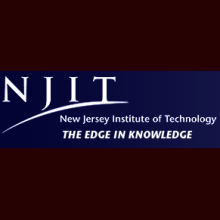New Jersey Institute of Technology
New Jersey Institute of Technology
University Heights
Newark, NJ 07102
United States
40.7416643, -74.1856472
| Business Type | Solar Training and Schools |
|---|---|
| Types of Energy | Solar Electric PV |
| Website | http://www.njit.edu |
| Market | Residential Properties |
| About |
Welcome to New Jersey’s science and technology university. We're proud of our 130 years of history, but that's only the beginning of our story - we've doubled the size of our campus in the last decade, pouring millions into major new research facilities to give our students the edge they need in today's demanding high-tech marketplace.
his is a beginner course in the study of solar photovoltaic (PV) cells, modules, and system components; electrical circuits; PV system design and sizing for use on homes; solar electric products and applications; and understanding energy conversion from sunlight to electricity, and working with solar conversion equipment. This course is based on a model developed by the North American Board of Certified Energy Practitioners (NABCEP) Photovoltaic (PV) Entry Level Solar Panel Installation Course and will give students the book knowledge and hands on experience needed to pass the (NABCEP) "Entry-level Solar Photovoltaic Certificate of Knowledge" exam. It is not intended to meet or replace the requirements for a Licensed Electrician. NJIT is New Jersey's public technological research university. Research funding has grown dramatically over the last decade. In 2009, research expenditures were more than $92 million. Research is conducted by faculty investigators, teams and interdisciplinary centers. Read an overview of research at NJIT. |




